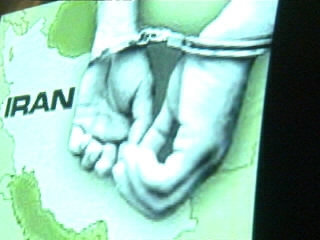Cyber Dissidents
 Dissidents in Iran face arrest, beatings and torture for publicly speaking out against the regime. But the internet is offering a safer and louder voice of opposition.
Dissidents in Iran face arrest, beatings and torture for publicly speaking out against the regime. But the internet is offering a safer and louder voice of opposition.
In the Middle East's most internet connected nation, a new challenge to the ruling hard-line clerics is emerging. Iran's massive youth revel in the liberal lifestyle afforded by the 'net. 'The internet is an independent space, relatively accessible, relatively uncontrolled' explains female web logger Mahsa Shekarloo. The anonymity of the web has opened up politics to a whole new audience. 'Iranians just want to express themselves - whether it's weblog, newspapers or any other means, as long as it's no risk to them' says cyber-dissident Farid Modarresi. He works for a Government funded web-site during the day, but by night maintains his own anti-regime site, conducting opinion polls, interviewing opponents of the regime and documenting protests. He hopes the internet can reach a whole new audience, since independent film and newspapers are easy to suppress. Hussein Shariatmadari is a close confidant of the religious Supreme Leader Ayatollah Khameni: 'Currently we only shut down the websites and blogs that have destructive moral effects' he says. Iran's cyber dissidents know it's a race against time to realise their online dream of democracy.
FULL SYNOPSIS

